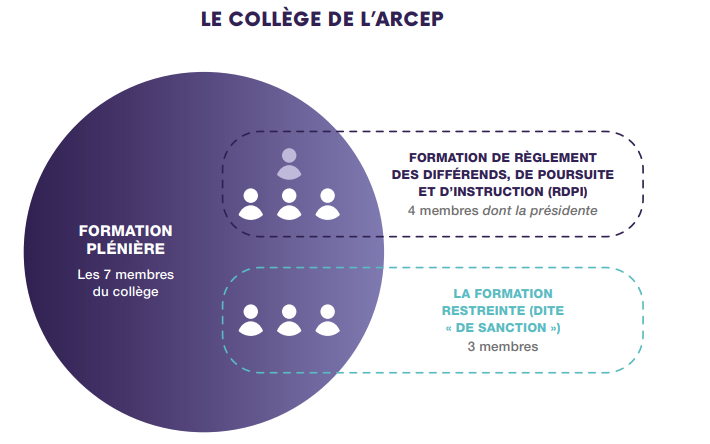In July 2023, Towercast applied to the Arcep body responsible for settling disputes, legal proceedings and investigations (aka “RDPI”), to settle a dispute that it was having with the firm TDF on the transmission of some of its reference technical and pricing offers.
Arcep’s RDPI body is publishing its decision today
In accordance with the latest market analysis decision of the upstream wholesale market, and the commitments made by TDF, which the latter made legally binding, TDF – which has been designated the SMP operator in this market – is required, among other things, to “publish a reference technical and pricing offer for accessing hosting and broadcasting services that are part of the upstream wholesale terrestrial television broadcasting market”. By way of exception, TDF “does not commit to publishing a reference offer with respect to the properties of its sites or its antennas that have been replicated. TDF does, however, commit to transmitting this information to Arcep and, if warranted, upon request, to an alternative broadcaster other than the one that replicated TDF’s infrastructure”.
Reference technical and pricing offers describe in detail the services provided and methods used for hosting and broadcasting in the upstream wholesale market for terrestrial TV broadcasting offers.
Arcep’s RDPI body rejects Towercast’s requests
Towercast was requesting, in particular, that Arcep order TDF to provide the former with its updated reference technical and pricing offers for those sites serving the Mutzig 1 (Bas-Rhin) and Reillanne (Alpes-de-Haute-Provence) areas. This request comes on the heels of negotiations between Towercast and TDF with a view to obtaining these two reference offers as part of the call for tenders issued by the firm MHD7 on 5 April 2023, to ensure broadcasting of the R7 multiplex.
Arcep’s RDPI body concluded that there was no need to rule on the request for transmission of the technical and pricing reference offer for the site used to service the Reillanne area since this offer was published on 1 June 2023.
Regarding the request for transmission of the reference offer for the site used to service the Mutzig 1 area, Arcep’s RDPI body concluded that it was neither justified nor proportionate to grant said request. Indeed, considering the facts of the investigation and on the day that it issued its decision, Arcep ascertained that Towercast had been awarded the abovementioned MHD7 contract and that it had installed its own antenna system on the Valocîme tower, from which it broadcasts. The Authority thus concluded that the refusal to transmit the TDF reference offer did not impede competition in the context of responding to this call for tenders, and that Towercast had replicated the TDF infrastructure in the Mutzig 1 area, as defined by commitment 2.3 of Market analysis decision No. 2022 – 0931 (see below). Arcep also noted that Towercast was able to replicate the TDF site thanks to a partnership agreement between Towercast and Valocîme, which pertained in particular to the use of Valocîme sites to enable Towercast to provide its DTT broadcasting services.
Reminder of the legal framework governing regulation of the upstream wholesale market for terrestrial television broadcasting services
Arcep makes a distinction between two markets within the wholesale terrestrial broadcasting market:
- The wholesale “downstream” market in which broadcasters market their broadcasting services to TV channels/networks (grouped on multiplexes). This market is structured around calls for tender issued by the multiplexes to select, for a period of between three and eight years (typically five years), their technical broadcasting service provider. Competition occurs at the point of service level;
- The wholesale “upstream” market, which Arcep has been regulating since 2006, in which broadcasters buy access to a third party’s broadcasting infrastructure, in order to install their own equipment on it.

How the Arcep Executive Board works:
Three of Arcep’s different competencies are exercised within three distinct Executive Board bodies:
- The Plenary Body which is composed of all seven Board members;
- The Body responsible for settling disputes, legal proceedings and investigations (RDPI) which is composed of four of the seven Board members, including the Chair, and which is responsible for opening prior examination procedures, issuing formal notices and notifying grievances;
- The restricted (sanctioning) Body, which is composed of the three remaining Board members, and responsible for imposing (or not imposing) penalties.
